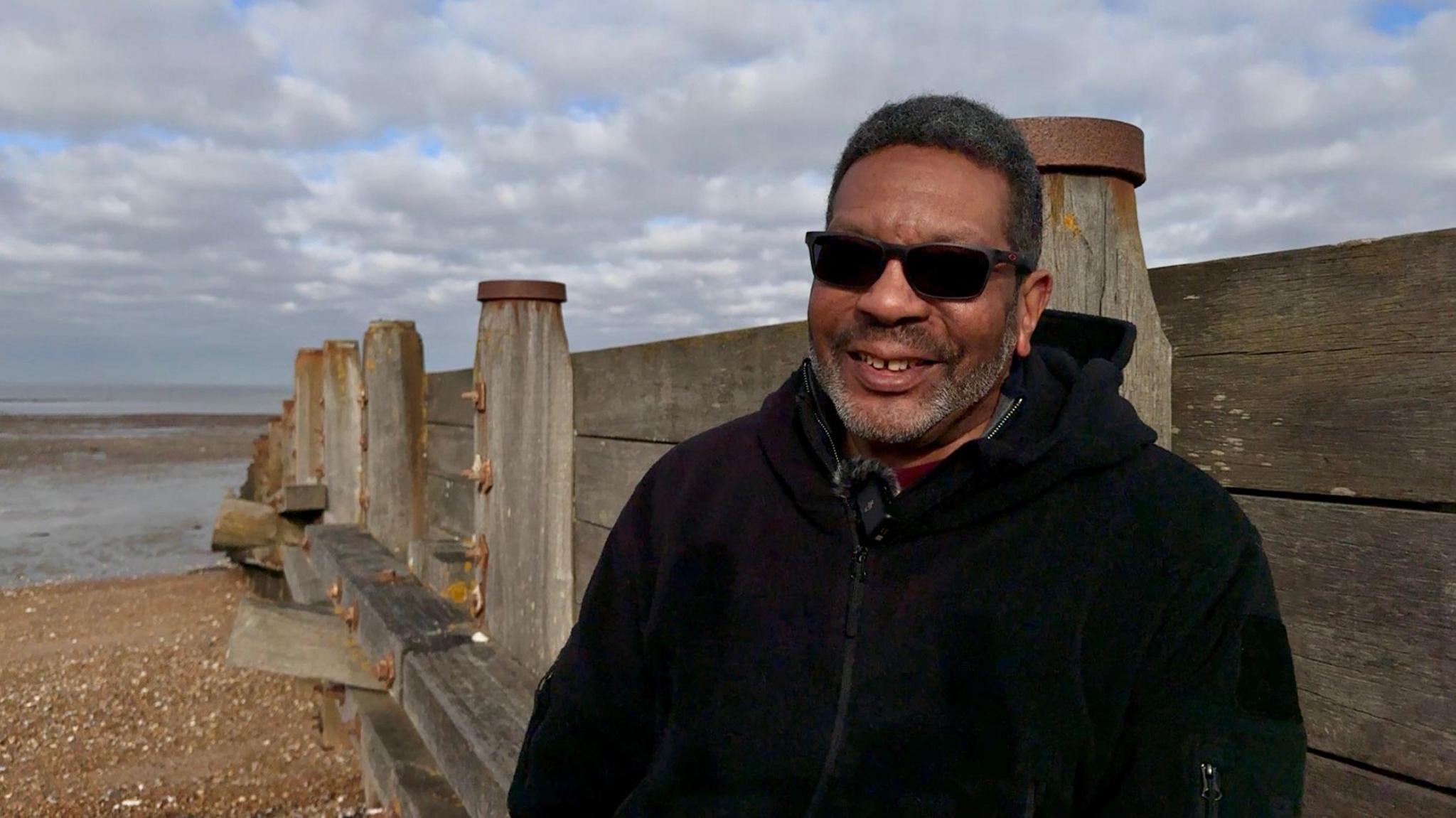'Certain sounds can bring me to my knees'

Fred Jackson is encouraging people to protect their hearing
- Published
A former audio engineer who has tinnitus and hyperacusis, two sound-related conditions, is encouraging people to protect their hearing.
Fred Jackson, who lives in Whitstable, Kent, has travelled the world for more than 30 years for his career.
He said that overexposure to live concert audiences first triggered his hyperacusis, and that he's now happiest on the beach, away from the hard surfaces and blaring music of many indoor spaces which impact on his tinnitus.
Tinnitus affects 7.6 million people in the UK according to Tinnitus UK, a charity which supports those living with the condition and campaigns for more research and awareness.
Tinnitus is a condition where a person hears noises - such as a ringing, buzzing or humming - that do not come from an outside source, according to the NHS.
Hyperacusis is when everyday sounds seem much louder than they should, which can be painful.
Mr Jackson said certain sounds, if loud enough, can bring him to his knees, and his social life is affected because he and his wife are "very selective" about where they go.
The engineer, who previously worked on Britain's Got Talent, is encouraging people to protect their hearing, saying society in general has become "too loud", with loud music playing in shops and restaurants.
"It's different, it's harsh. We wear ear buds all the time, we're constantly glued to our phones, we're constantly beating our ears up," he said.
"Take a break, protect yourself."
Alex Brooks-Johnson, chief executive of Tinnitus UK, has had tinnitus for 11 years and said he had "learned to live with it".
"Unlike some people who know how it happened or what caused their tinnitus, I don't," he added.
"I just woke up one morning with it. I have a very high pitched noise in my head that is constant."
He said there was a "strong link" between tinnitus and stress, adding: "If you can manage your stress you'll be taking a huge step forward to being able to live well and manage your tinnitus."
Mr Brooks-Johnson said the charity was calling for more high quality cognitive behavioural therapy for people with tinnitus and for more awareness of the condition among front line medical staff.
With tinnitus affecting a growing number of people, he added: "We remain hopeful that research will start to discover more ways that we can help people with tinnitus, but also move towards a cure."
Follow BBC Kent on Facebook, external, on X, external, and on Instagram, external. Send your story ideas to southeasttoday@bbc.co.uk, external or WhatsApp us on 08081 002250.
Related topics
- Published10 February 2019

- Published17 January 2024

- Published13 July 2024
